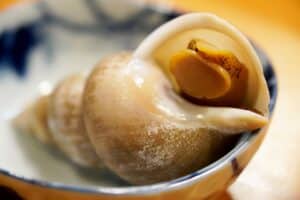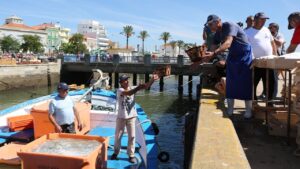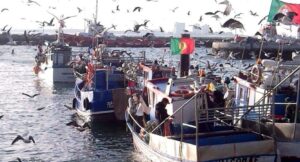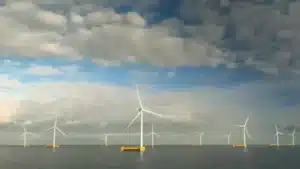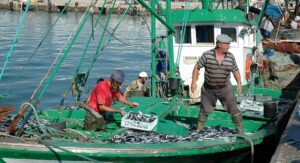Marine Stewardship Council says “there is still a lot to be done”
Only 3% of the fish consumed in Portugal has a sustainability label. This means that of the 55 kgs consumed by each person in the country (last count, this was 10.6 million people) only 16,000 tonnes has been ‘caught’ in what the Marine Stewardship Council considers to be ‘a sustainable way’.
“In Portugal we have 445 products with the blue label and 72 companies with active certification. However, this represents only 3% of the total fish consumed in Portugal,” Alberto Martín, the Iberian director of MSC tells Lusa.
Chain of custody certification allows companies to handle and commercialise certified fish. Fishery certification, on the other hand, is the most difficult MSC standard to achieve, as the auditing process alone takes around a year.
The process, which is conducted by an external auditor, assesses almost 30 indicators, divided into three groups – the first takes into account, for example, whether the state of the species is good and the second whether the fishing has significant and irreversible environmental impacts, while the third assesses governance.
If companies fulfil these requirements, they receive certification. Certification is ‘valid’ for five years, and every year auditors will check the progress of the business in question.
Alberto Martín said that 90% of fisheries (including fish rearing businesses) that achieve certification still have to make some improvements.
If the fishery is one year late in implementing these improvements, it can continue with the certification, but if it is two years late, its certification is suspended.
“After five years they have to start the process all over again. Fisheries are not static, they can change over time. With phenomena like climate change, which are having an impact over time, [fisheries] can have different scenarios that change their parameters,” Martín explains.
In the Portuguese market, the most common certified species are cod, hake, pollock, tuna and salmon.
Rodrigo Sengo, MSC’s senior programme developer for Portugal, stressed “there is still a lot to be done” in relation to species such as cod -. given the country’s tradition of consumption.
Canned tuna, on the other hand, “is not easy to work with”, since, despite the availability of the raw material, its integration into the markets is challenging.
Although it represents only 3% of fish consumed in Portugal, the MSC blue label is growing in the market. In the period 2023/24, 237 products with the blue label were exported – mainly to Luxembourg, France, Germany and Brazil – representing 57,000 tonnes and generating €45 million – and a recent study has shown that 75% of people in Portugal support the need to switch to more sustainable sources.
Says Lusa, this year, 46% of Portuguese consumers recognise the MSC’s blue label, compared to 41% in 2020.
To raise awareness of the importance of sustainable fishing to guarantee the availability of fish for future generations, MSC promotes initiatives such as Mar Para Sempre (Sea Forever) week, which this year was supported by former footballer Fábio Coentrão who retired from sport three years ago to fish with his own boats off the coast of Vila do Conde.
Source material: LUSA




